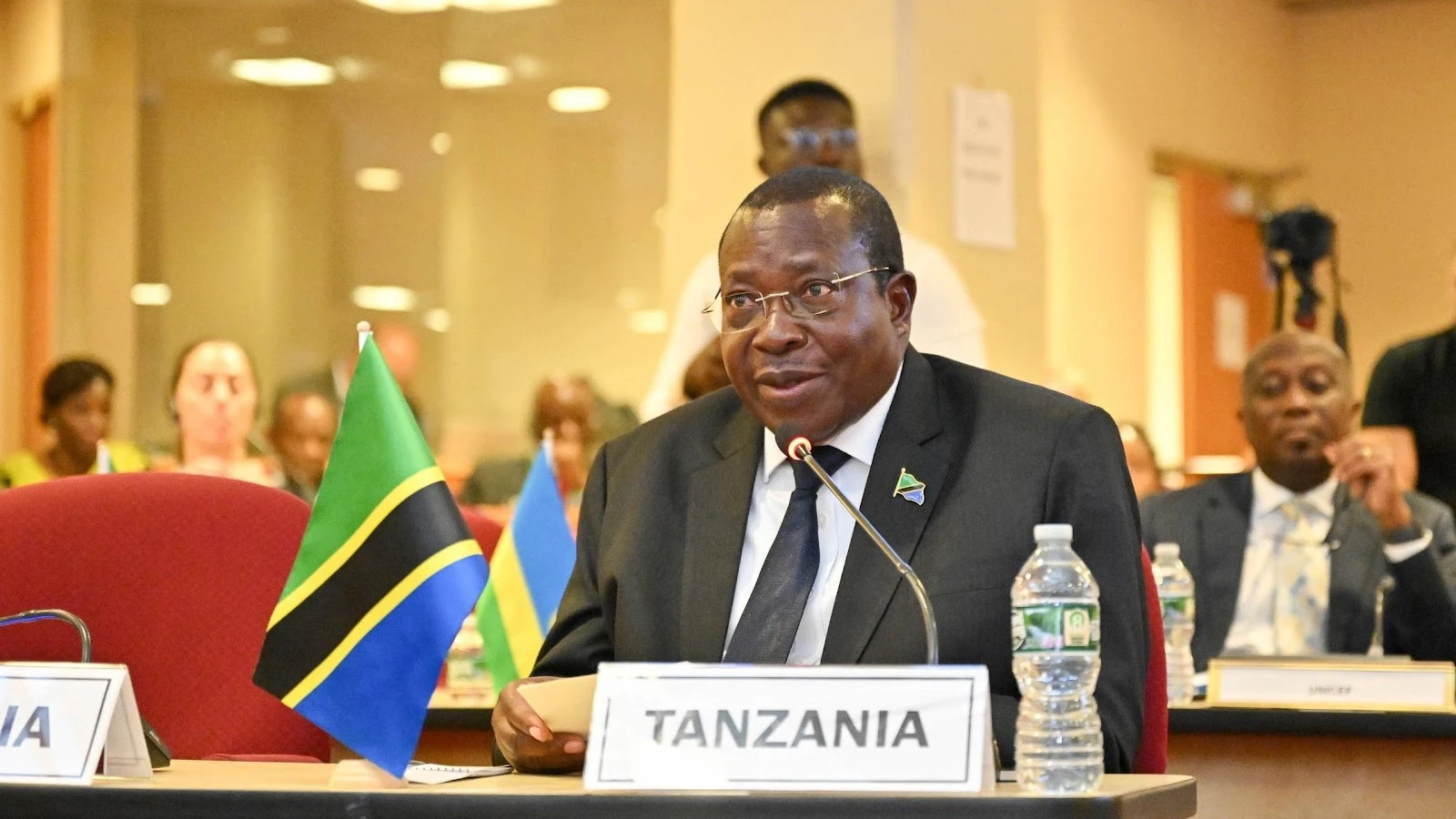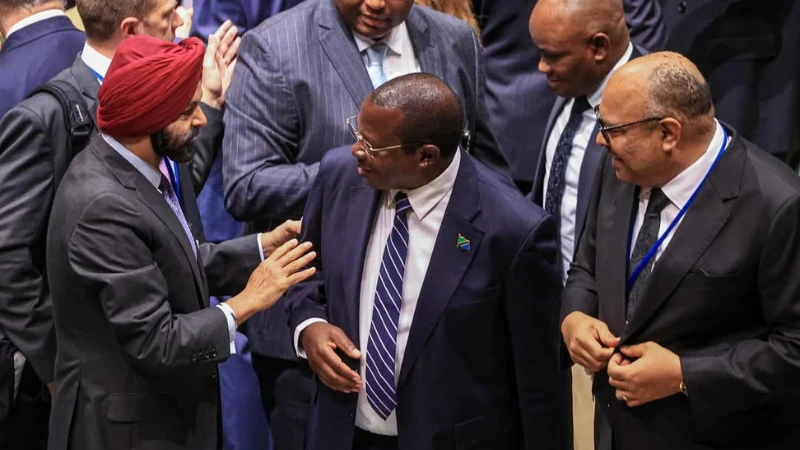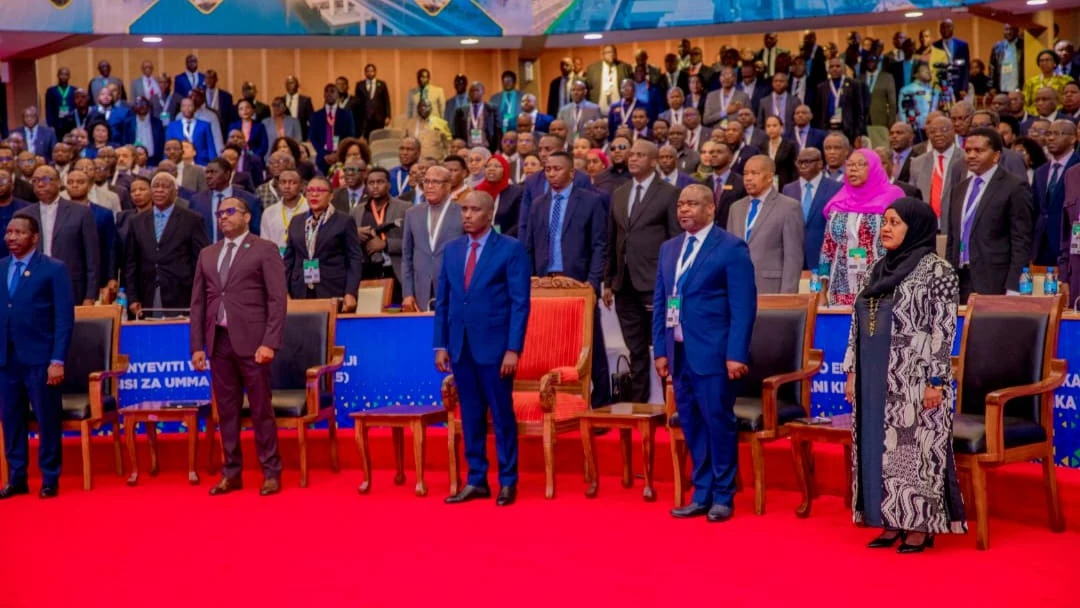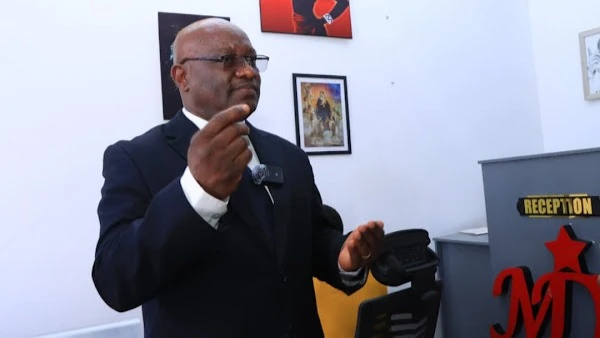Tanzania is open for business, VP tells American executives

VICE President Dr Philip Mpango has assured American investors that Tanzania is open for business.
Opening an American-Tanzania business and investment forum held on the sidelines of the 80th United Nations General Assembly (UNGA 80) plenary session, he pointed at ongoing reforms, modernized infrastructure and a liberal economy designed to attract foreign capital.
He said the government recognizes the private sector as a key partner in driving social and economic transformation, with the country’s 60 years of political and social stability laying a strong foundation for long-term investment.
“Tanzania is rapidly improving its infrastructure and business climate. We invite American investors to seize these opportunities, while Tanzanian entrepreneurs must also think globally and engage with the US market,” he urged.
Highlighting reforms aimed at improving the ease of doing business, he cited business registration as once taking two weeks now takes only 24 hours, while investment permits that used to take months are processed within days through the Tanzania Investment and Special Economic Zones Authority (TISEZA).
Underscoring the government’s commitment to regulatory improvements including eliminating unnecessary rules and investing in education to build a skilled workforce, the VP identified critical and rare minerals as a priority sector, positioning Tanzania as a reliable global supplier. Graphite deposits in Mahenge area in Morogoro Region could meet up to 15 percent of global battery manufacturing raw material demand, while nickel deposits at Kabanga, aside from large-scale lithium deposits make Tanzania one among the world’s rich countries in rare minerals potential, he stated.
The government is focused on value addition — from mining and processing to eventual battery production — to maximize local benefits, he said, pointing at digital economy strides, with internet penetration rising from 13 percent to 60 percent in five years.
Mobile money transactions hit $75bn — nearly 90 percent of the gross domestic product — supported by 27m accounts, he stated, stressing the capacity of Tanzanian fintech innovation with entities like NALA, an online marketing firm now serving over half a million users worldwide.
Inviting US participation in agriculture, he pointed at 44m hectares of arable land upon which partnerships in precision farming, drone technology, AI-driven agriculture and agro-processing investments have ample opportunities.
Pointing at healthcare sector openings, he urged collaboration with American companies to manufacture medicines and medical supplies accessing East Africa’s 300 million people and the wider 1.4 billion market covered by the African Continental Free Trade Area (AfCFTA).
He similarly cited the ongoing construction of the 2,561-kilometre standard gauge railway (SGR), designed to carry 10,000 tons of cargo per train, linking Tanzania with Uganda, Burundi, the Democratic Republic of Congo and Rwanda.
The tourism industry now attracts over two million visitors annually and generates 43.37bn in gross earnings, he said, noting further that the government is projecting $185bn investments in five years, or $37bn annually, to achieve Vision 2050 targets of industrialization, integrated infrastructure and a resilient economy.
Trade between Tanzania and the US had steadily grown, increasing from $228m in 2020 to $70m in 2024, with US exports to Tanzania standing at $566m in 2024 while Tanzania’s exports to the US rose from $47m in 2020 to $204m in 2024, he stated.
Direct US capital investment flows to Tanzania reached $40m in 2023, bringing the total stock of US investments to $1bn, he specified, in the forum attended by business leaders, who praised Tanzania for its predictable policies, peace and a welcoming investment environment.
US participants expressed confidence that Tanzania’s Vision 2050 target of a $1trn economy is if available opportunities are properly used, officials noted.
Top Headlines
© 2025 IPPMEDIA.COM. ALL RIGHTS RESERVED






















